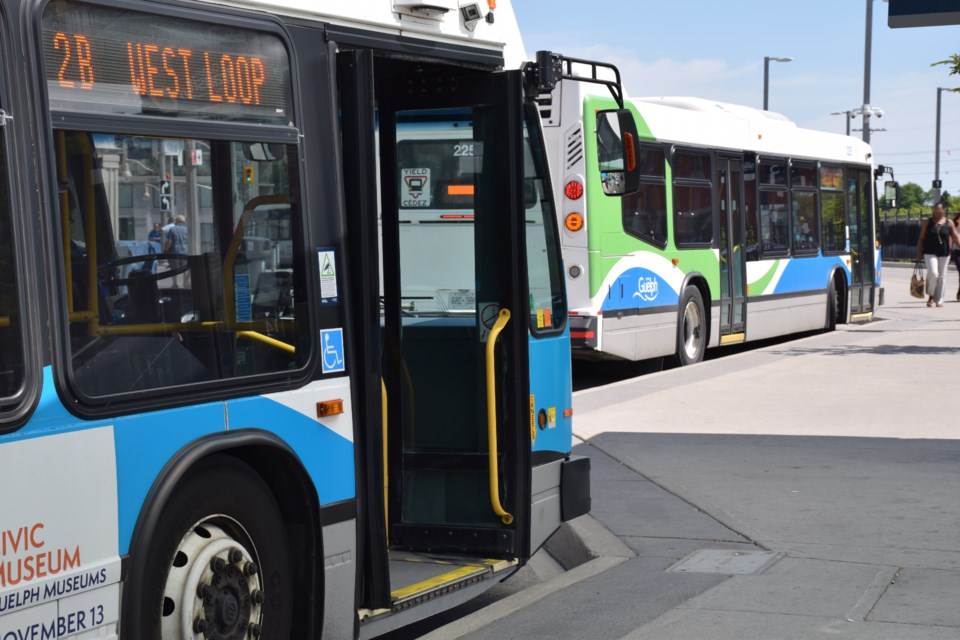The main news out of Monday’s Committee of the Whole was its epic length, but I think the bigger news is the City of Guelph’s very different reactions to two similar though different issues.
On the one hand, if you need help parking downtown they’ll bend over backwards to help you. On the other hand, if you want more frequency on a bus, you’re going to pay for it elsewhere in the system.
What’s the difference, do you think? Why are those that ride the bus asked to accept hard choices, while those that need parking are given the proverbial keys to the city?
Of course, no one is going to suggest that there’s no parking problem downtown, and neither should anyone deny that there are issues on transit no matter the route. The difference is treatment. The city is offering free parking in evenings and on the weekends, plus a shuttle bus to address the parking issues. Transit users? You want more #3 buses, that means no more #41 Downtown-University Express buses!
Cool. Forget the fact that there’s already a shuttle bus that runs downtown everyday. It’s called the bus, and it departs from locations throughout the city, and not just the parking lot on Elizabeth Street.
There’s also clearly some misunderstanding on my part, and the part of other transit users. You see, when the schedules and routes were changed last fall, it was said that the changes were made without spending more money than budgeted for Guelph Transit.
In January, transit implemented changes that didn’t expand service, but retracted it. And not just on the #3 Westmont, but the #11 Willow West, and the #14 Grange, too. So if we have to cancel one bus route altogether to pay for the old schedule for another, the only conclusion is that the city has cut transit’s budget. When did that happen?
Also, does anyone at City Hall realize that the #41 is already fairly unreliable? Back in the fall, I charted a period where the #41 ran without a single service interruption on only 10 out of 32 days. Now it does look like there’s been some improvement since last fall, but if you look at Transit’s Twitter feed now, it’s the #99 Mainline plagued by interruptions almost daily.
Guess which bus route the some 9,000 monthly riders of the #41 would have to take if their bus disappeared tomorrow?
On top of those considerations, city staff were quick to tout that improvements to the routes along the university corridor on Gordon thanks to higher frequency, but at the height of the school year, people are still getting left at the side of the road. Probably another reason not to cut the #41, so why propose it to begin with?
I think the answer is one of two possible options: senior city staff are trying to offer council and transit riders a false dichotomy, or they don’t really understand the issues of transit beyond the bare bones numbers.
Looking at a spreadsheet, it may be easy to see that some routes don’t have as many riders and say “Let’s cut!” there without considering who those riders are. Looking at a map, you may say, “Oh well, there’s another bus stop within a 15-minute walk,” without asking if that person is able to take a 15-minute walk. Especially in winter. Especially when sidewalks take a back seat to getting roads clear. Especially sidewalks on residential streets.
Interestingly, people with mobility issues were cited as a reason to run shuttle buses to Old Quebec Street in an article in the Guelph Mercury-Tribune.
Moving on to the Downtown Parking Master Plan, it was evident that the committee wasn’t so willing to engage in quid pro quo. It was easy to see that no one around the horseshoe wanted to initiate on-street paid parking, in an election year, and suffer the slings and arrows of a fairly influential and media savvy group of business owners in the city.
In the meanwhile, the city will keep doing everything they can for people that want to park downtown, like lifting restrictions temporarily along residential streets in the core’s periphery. One of the people that will benefit is Greg Clark, the Manager Financial Strategy and Long-term Planning, who admitted parking in the periphery is something he does at committee.
Now, it’s been reported erroneously that city staff get cheaper parking spots, or preferential parking, but I wonder if staff within City Hall are being encouraged to leave their own cars at home to free up spaces. Talk about killing two birds with one stone (in a metaphorical sense)! What a chance to get to know Guelph Transit, and its issues, better!
This is a pipe dream though. The challenges transit users face are the same in 2018 as they were in 2014, and we’re just not equal in the eyes of the city.
How long until they turn Guelph Central Station into a parking lot and move all the buses back to St. George’s Square?
EDITOR'S NOTE: This column originally attributed a statement to Jamie Zettle, program manager of parking. In fact, it was Greg Clark, the manager of financial strategy and long-term planning.
